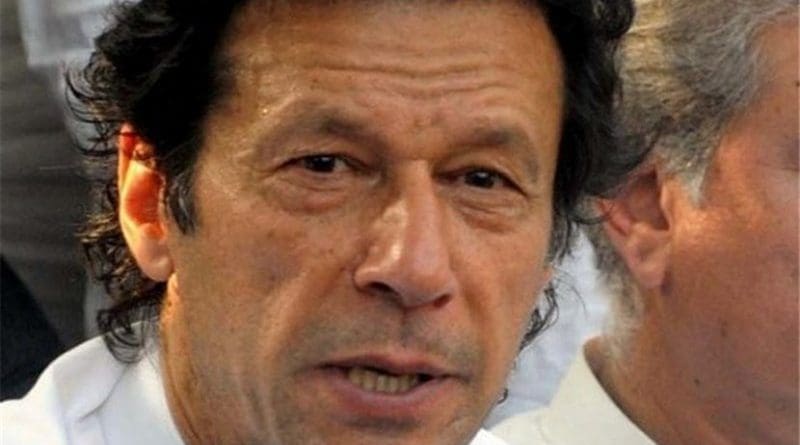Pakistan: Going Beyond Electoral Politics – OpEd
Expectedly, most of the major political parties, especially those who have not been able to do well on 25 July are expressing concerns about electoral rigging. But a pertinent question that comes to mind is: when will we go beyond the electoral politics? If the issue of rigging dominated the U.S. politics and continues to do so in the form of the electoral meddling by Russia, how can a country like Pakistan be free from it? This is not to find excuses or justification for rigging, but determining what is really meant by it is important. Additionally, in our commitment to a fair election, it is necessary to ensure that we are not lobbying against one political party which has emerged.
The question of “electoral rigging or micromanagement” also needs to be defined. How do we define rigging? To what extent do we differentiate a healthy competition between political parties and rigging? The narrative against the Pakistan Tehreek-e-Insaf (PTI) seems to suggest that their rise or failure is the criteria for determining nonpartisanship in the 2018 general election. When critics dub success of the PTI as part of a “conspiracy theory or micromanagement”, I cannot help but wonder if they have taken into account the performance of the so-called impartial political parties in the past?
Without a doubt, electoral process, in Pakistan, is evolving, which will gradually take time to attain its zenith. For instance, it requires an inculcation of values grounded in independent political institutions and public opinion. Despite developing a consensus on furthering electoral process, the electoral trends did not reflect signs of a healthy polity. Even though it has been underscored repeatedly, yet a large number of the voters cast the ballot on tribal or caste affiliation, sadly.
The problem is that an understanding of an electoral process, in Pakistan appears to be limited to the Election Day. However, conceptually, it is broader that involves steps or process before and after the Election Day. Moreover, the mere existence of political institution, in other words, is not adequate. Most importantly, it requires independent institutions working in harmony rather than a confusing amalgamation of strong and weak ones. For example, the Election Commission in Pakistan (ECP) has been criticized for not ensuring transparency in the election process. Apparently, two of the mainstream political parties have furthered the narrative on pre-poll rigging. But have we seen evidence or is it only speculations?
Undoubtedly, the role of an interim government is significant, especially in maintaining a neutral stance during the election as well as providing an equal ground level to all political parties. This is also one of the reasons why an interim government’s role has become controversial. In the general election of 2013, the opposition parties blamed an interim government for supporting PML-N. A closer look at concerns and skepticism expressed by the political parties predicts the same fiasco. My concern, however, has a lot to do with repetition of same mistakes. Why is it always the weak party who seems to be concerned about rigging? While rigging in the election is common in Pakistan, however, it does not mean it should be used as an excuse for incompetence by any political party.
The Electoral Process, in Pakistan, needs to go beyond the Election Day. This change can be brought about by the efforts of literate minds who can understand the bigger picture and who can guide the voters in terms of questioning the political parties on grounds that matter. It can be accelerated by holding an intra-party election in order to ensure merit. Of course, all the political parties should be given chances to campaign freely; however, most of the political parties lack political culture internally which feeds into a systemic problem of tolerating corrupt leaders.
In Pakistan, electoral process is growing but expecting it to turn into a perfect form in a decade or so may not help. Questioning political parties on the basis of their manifestos, strategies for addressing the national or local problems should be the main criteria for holding them accountable. Election Day is part of a process for selecting candidates, however, in Pakistan, it is undergoing changes. Going beyond electoral politics would become easy if we start to focus on issues that matter after the Election Day.
Additionally, all the funds and focus invested to guarantee electoral victory should not be limited to acquiring power only or stoking polarity in the country. Lastly, there is nothing wrong with concerns being raised about “rigging or micromanagement” but if it goes beyond a certain limit, it can acquire a shape of a conspiracy theory or a paranoid mindset.
*Iqra M. Akram works as a researcher at Islamabad Policy Research Institute (IPRI). Views expressed are of the writer and are not necessarily reflective of IPRI policy or any other Government institution.

